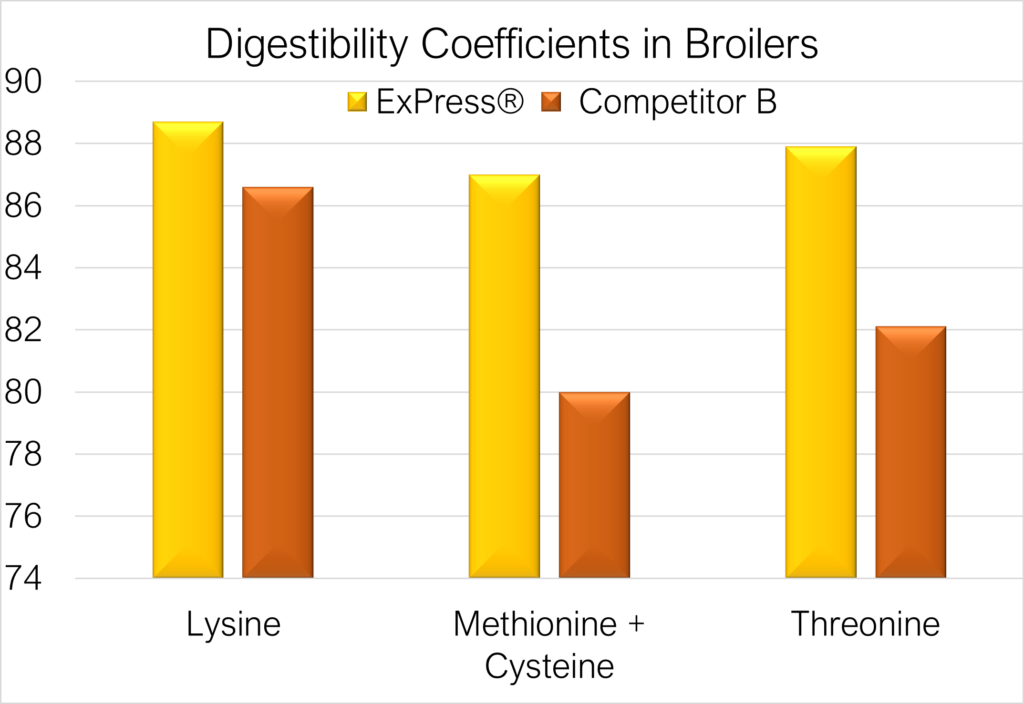Reduce Anti-Nutrients with Extruded Soy for Increased Broiler Digestibility

Soybeans contain several antinutritional factors. Thermosensitive antinutritional factors, such as trypsin inhibitors, urease, lipoxygenase, and lectins, are found in several oilseed crops, but are at high levels in soybeans as described by Takeuchi. Most concerning, urease, and trypsin inhibitors (TI) interfere with protein digestion when fed to animals. A recent study examined the correlation between dietary antinutrients and nutrient digestibility. As the antinutrient levels increased, both poultry and pigs suffered reduced protein digestibility and reduced feed intake.
Measuring the urease index (UI) is a simple and useful method to determine if the soymeal was heated enough to reduce antinutrients. However, UI measurement alone is not useful to determine if the heating process was excessive. If the thermal process is not well-controlled, damage to the amino acids in the meal can occur, resulting in lower amino acid digestibility in the animal.
Solvent-extracted and other mechanically processed soybeans have differences in their anti-nutrient levels and protein digestion due to cooking variation in these processing methods. Supported by more than 50 years of animal feeding trials, when soybeans are processed under the recommended parameters using high-shear dry extrusion, both extruded full-fat soy (FFS) and ExPress® soy meals have minimal variation in nutritional quality between batches. Shown below is a comparison table of commonly studied ingredients and their variation in the antinutrient, TI. Differences in the protein digestibility are shown below which indicate, reduction of antinutrients and limiting over thermal exposure are key to optimized broiler performance (i.e. lysine digestibility).

While thermal treatment of soybeans is required to lower anti-nutritional factors (ANF), over-exposure to heat treatment can also damage proteins due to the Maillard reaction. This reduces the protein digestibility (and essential amino acids) and can cause off-flavors and darker colors to the meal.

Lysine – a limiting amino acid – is particularly susceptible to a Maillard reaction caused by prolonged heat treatment. In the graph above, lysine digestibility was improved by 2.4% points and methionine + cysteine digestibility was improved by 8.0% in broilers fed ExPress® soymeal versus mechanically processed soymeal by competitor equipment. This effect is even more pronounced with prolonged heating processes like roasting and toasting.
The ExPress® process has been optimized to produce highly digestible extruded soy ingredients. Insta-Pro provides a total system solution and nutritional advantages for quality soy meal. When the recommended extrusion parameters are implemented, the resulting products have low antinutrient content and superior digestibility compared to commodity soy products, as demonstrated in the above table. Furthermore, low TI and urease levels correlate to improved amino acid along with energy digestibility.
To ensure consistent, high-quality ingredients, why would you not choose high-shear dry extrusion?



